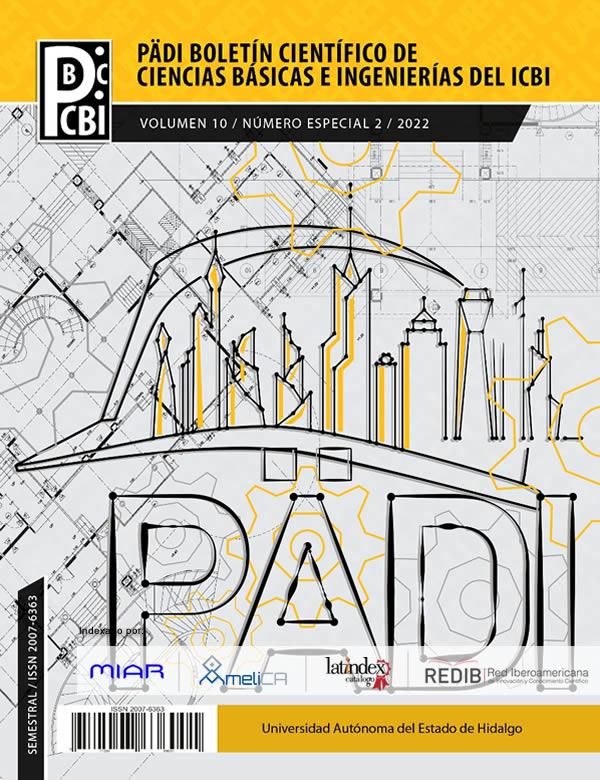Application of data mining techniques to characterize students under the effect of COVID-19
Abstract
In this research, data mining (DM) techniques were integrated, such as hierarchical cluster analysis and logistic regression, to characterize students of an educational program of the Autonomous University of the State of Hidalgo (UAEH) who may be seen as vulnerable due to the fast migration to online education and other repercussions of the actions taken to prevent the spread of COVID-19. For the application of the DM techniques, a survey was carried out on the students to obtain data about the sociodemographic, economic, technical, mental health and academic conditions that allow finding patterns that affect the academic performance of the students. With the results obtained, the existence of 2 groups (clusters) can be observed, one of them with better conditions than the other and also a list of items that carry both weight negatively and positively a student's academic performance being affected.
Downloads
References
Abidah, A., Hidaayatullaah, H. N., Simamora, R. M., Fehabutar, D., Mutakinati, L. (2020). The impact of Covid-19 to Indonesian education and its relation to the philosophy of “MerdekaBelajar”. SiPoSE: Studies in Philosophy of Science and Education, 1(1), 38–49.
Braga-Neto, U. (2020). Fundamentals of Pattern Recognition and Machine Learning. Springer. https://doi.org/10.1007/978-3-030-27656-0.
Bramer, M. (2013). Principles of Data Mining. (2a ed.) Springer. DOI 10.1007/978-1-4471-4884-5.
Cirami, L., Ursino, D. J., Beltramino Persoglia, A., Mancevich, L. A. y Andreau. (2018). Afrontamiento emocional en situaciones de estrés académico: resultados preliminares de un análisis de clúster jerárquico con estudiantes universitarios. IX Congreso Internacional de Investigación y Práctica Profesional en Psicología XXIV Jornadas de Investigación XIII Encuentro de Investigadores en Psicología del MERCOSUR. Facultad de Psicología - Universidad de Buenos Aires, Buenos Aires.
Cox, D. R., Snell, E. J. (1989). Analysis of Binary Data. (2nd ed.). London: Chapman and Hall Ltd.
Dong, J. (2020). Online learning and teaching experiences during the covid-19 pandemic: a case study of Bangladeshi students receiving China’s higher education. Sciedu Press. 9(2). 37- 45. https://doi.org/10.5430/elr.v9n2p37
González, T., De la Rubia, M. A., Hincz, K. P., Comas-Lopez, M., Subirats, L., Fort, S., Sacha, G. M. (2020). Influence of COVID-19 confinement on students' performance in higher education. PLoS ONE, 15(10 October). https://doi.org/10.1371/journal.pone.0239490.
Heredia, R., Rodríguez, H., Vilalta, A. (2014). Predicción del rendimientoen una asignatura empleando la regresión logística ordinal. SciElo. https://scielo.conicyt.cl/scielo.php?pid=S0718-07052014000100009&script=sci_arttext.
Jaggia, S., Kelly, A., Lertwachara, K., Chen, L. (2021). Business analytics. New York, USA: McGraw Hill Education.
Kapasia, N., Paul, P., Roy, A., Saha, J., Zaveri, A., Mallick, R., Barman, B., Das, P., Chouhan, P. (2020). Impact of lockdown on learning status of undergraduate and postgraduate students during COVID-19 pandemic in West Bengal, India. Children and Youth Services Review, Volume 116. https://doi.org/10.1016/j.childyouth.2020.105194.
Martínez, J. R., Ferrás, Y., Bermudez, L. L., Ortiz, Y., Pérez, H. E. (2020, 5 junio). Regresión logística y predicción del bajo rendimiento académico de estudiantes en la carrera Medicina. Revista Electrónica Dr. Zoilo E. Marinello Vidaurreta. http://www.revzoilomarinello.sld.cu/index.php/zmv/article/view/2230/pdf_691.
Mathivet, V. (2018). Inteligencia Artificial para desarrolladores. (2a ed.). Ediciones Eni.
Murphy, M. P. A. (2020). COVID-19 and emergency eLearning: Consequences of the securitization of higher education for post-pandemic pedagogy. Contemporary Security Policy, 41(3), 492–505. https://doi.org/10.1016/j.jad.2020.06.034
Odriozola-González, P., Planchuelo-Gómez, A., Irurtiaa, M. J., Luis-García, R. (2020). Psychological effects of the COVID-19 outbreak and lockdown among students and workers of a Spanish university. Psychiatry Research, Volume 290. https://doi.org/10.1016/j.psychres.2020.113108.
Organización Mundial de la Salud (OMS). (2021). COVID-19 Dashboard. Geneva: World Health Organization, 2020. Consultado el 19 de julio de 2021 en: https://covid19.who.int/.
Rico, J. J., Rodríguez, A. G., & Vilalta, J. A. (2014, 9 enero). Empleo de la regresión logística ordinal para la predicción del rendimiento académico. http://www.invoperacional.uh.cu/index.php/InvOp/article/view/415.
Robles, A., Cortés, P., Muñuzuri, J., Barbadilla, E. (2020, 1 abril). Aplicación de la regresión logística para la predicción de roturas de tuberías en redes de abastecimiento de agua. Dirección y Organización. 70, 78-85. https://www.revistadyo.es/index.php/dyo/article/view/570.
UNESCO (2021a). New UNESCO global survey reveals impact of COVID-19 on higher education. Recuperado de https://en.unesco.org/news/new-unesco-global-survey-reveals-impact- covid-19-higher-education.
UNESCO. (2021b). Education: From disruption to recovery. Consultado el 19 de julio de 2021 en: https://en.unesco.org/covid19/educationresponse/.
Wang, Z, Hai-Lian Y. Yun-Qing, Y., Dan, L., Zhi-Hao, L., Xi-Ru, Z., Yu-Jie, Z., Dong, S., Pei-Liang, C., Wei-Qi, S., Xiao-Meng, W., Xian-Bo, W.,
Xing-Fen, Y., Chen, M. (2020, 1 octubre). Prevalence of anxiety and depression symptom, and the demands for psychological knowledge and interventions in college students during COVID-19 epidemic: A large cross- sectional study. ScienceDirect, 275. https://www.sciencedirect.com/science/article/abs/pii/S0165032720323922?via%3Dihub.
Winston, W. L., Albright, S. C. (2019). Practical management science. (6a ed.). Cengage.












